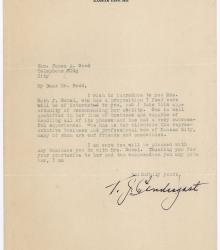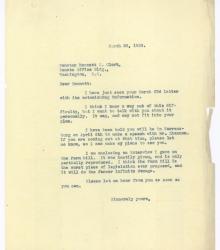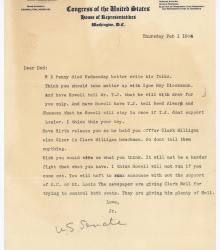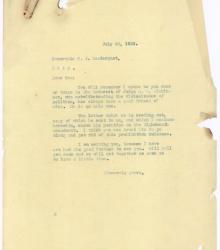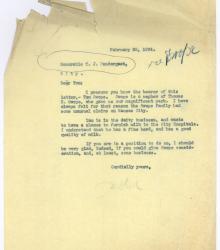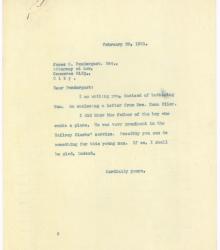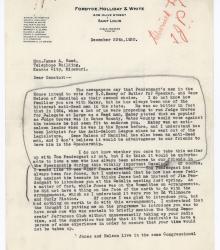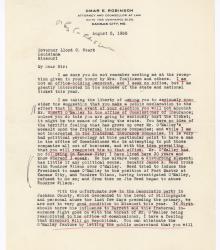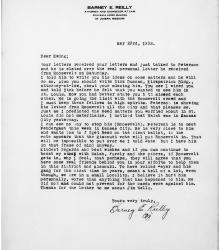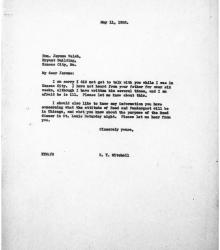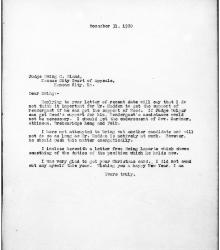Letter from Tom Pendergast to Senator James A. Reed recommending he hear Ruth J. Rubel's business proposition.
Reed, James A.
Letter from James A. Reed to Bennett C. Clark. Reed replies that he is shocked by the information in Clark's previous letter and asks to meet in person to discuss the matter.
Letter from Ralph F. Lozier, Jr. to his father Ralph F. Lozier. Ralph, Jr. informs Ralph, Sr. of the death of W. D. Penny and suggests that he announces his Senate campaign without the support of T. J. Pendergast. Thus, Charles M. Howell will drop out of his campaign, leaving Pendergast to support Ralph, Sr.
Letter from James A. Reed to Tom Pendergast regarding Judge C. C. Dickinson's position on the Eighteenth Amendment, and remarks that he thinks "you can trust him to go along and get rid of thise prohibition nuisance."
Letter from James A. Reed to Tom Pendergast, hoping to obtain Tom Swope work supplying milk to the city hospitals.
Letter from Senator James A. Reed to James M. Pendergast forwarding a request from a young man seeking assistance.
Letter from Bennett C. Clark to James A. Reed. Clark suggests that Reed convinces Pendergast to support Elmer Jones instead of H. O. Maxey or Gene Nelson as Missouri Speaker of the House.
Letter from Omar Robinson to candidate for Missouri governor, Lloyd Stark, advising him to speak out publicly against R. Emmet O'Malley, the Commissioner of Insurance.
Letter from Barney E. Reilly to Ewing Young Mitchell, Jr. on May 23, 1932. Reilly discusses Franklin D. Roosevelt's primary campaign as it relates to Kansas City and northwestern Missouri politics.
Letter from Ewing Young Mitchell, Jr. to Hon. Jerome Walsh on May 11, 1932. Mitchell inquires what intention Thomas J. Pendergast and James A. Reed might have during their trip to Chicago.
Letter from Bennett C. Clark to James A. Reed in which he discusses a recent meeting with James A. Farley. In this meeting, Farley had asked if it was okay for Thomas J. Pendergast to control Kansas City appointments.
Letter from Ewing Young Mitchell, Jr. to his nephew, Kansas City Court of Appeals Judge Ewing C. Bland, on December 31, 1920. Mitchell comments that Sanford Madden should not the support of all Kansas City political factions in order to be a strong candidate for marshal. Mitchell contends that Thomas J.
